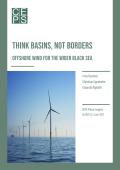
This case study presents an overview of initial assessments of the technical potential for offshore wind in the Black Sea. It also identifies policy-related barriers at the national and regional levels and provides a blueprint for policymakers to overcome them.
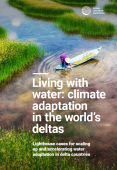
This case study brings together inspiring case studies from around the globe to galvanize governments and citizens to help the half a billion people living in delta communities who are imperiled by climate change.
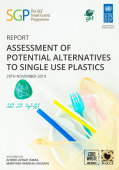
In 2011 the Maldives imposed a 400% import duty on plastics bags and made 'environmentally friendly' plastic bags duty-free. This policy change led to a significant increase in the imports of 'oxo-biodegradable' bags into the market causing even more harm to the environment than regular plastic bags.
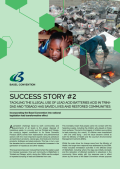
Dumping of lead-acid batteries from cars in Trinidad and Tobago has resulted in children being exposed to lead poisoning. Responding to the situation, the government enacted national legislation, as called for in the Basel Convention, to minimize their generation and ensure their environmentally sound management.

Colombia’s largest marsh ecosystem, the Ciénaga Grande de Santa Marta (CGSM), has experienced substantial erosion since the 1950s, when a highway was constructed along Salamanca Island. The Government of Colombia has proposed to refurbish and expand the highway to make it more resilient to coastal erosion and sea level rise, and to accommodate increased vehicle traffic. The proposal was a conventional “gray” design.
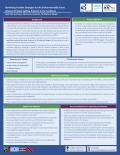
This case study provides insight into creating effective manuals for environmentally sound management of mercury waste in Small Island Developing States.
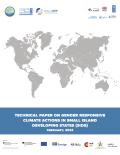
This case study highlights how Small Island Developing States (SIDS) have implemented gender responsive climate actions and draws best practices for SIDS across regions.
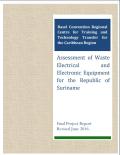
This report documents the outcomes of an assessment executed by the Basel Convention Regional Centre for Training and Technology Transfer for the Caribbean (BCRC-Caribbean) on the waste electrical and electronic equipment waste stream in Suriname.
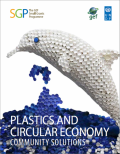
This publication captures the experiences and lessons learned of the GEF Small Grants Programme, implemented by UNDP, on plastics management.
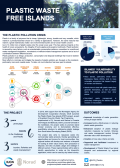
Most efforts to minimize and mitigate the impacts of plastic pollution are focused on the mainland, particularly rivers and coastal areas. To date, not much attention has been paid to islands.
This factsheet highlights IUCN's Plastic Waste Free Islands (PWFI) project - part of its global Close the Plastic Tap Programme -...
